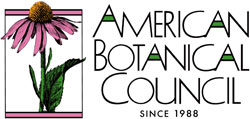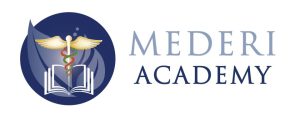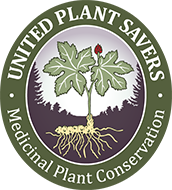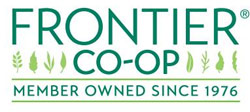June 2 – 5, 2017
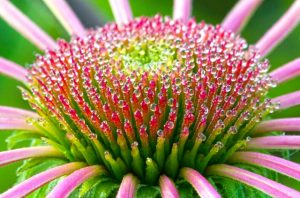 Past conference–thanks to all who made it such a success! See photos and other info here on facebook.
Past conference–thanks to all who made it such a success! See photos and other info here on facebook.
Annual symposium takes place at beautiful Blue Ridge Assembly in Black Mountain, North Carolina.
Theme: Botanicals for the wide-ranging effects of inflammation. PLUS Friday field study and pre-conference intensive, panel discussions, medicine-making classes and herb walks in a beautiful retreat setting. Speakers and topics
Medicines from the Earth Schedule Summary
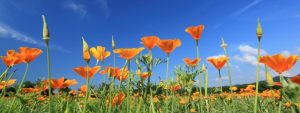
Registration Fees
Registration now closed. Hope to see you next year!
You are welcome to come to Blue Ridge Assembly, 84 Blue Ridge Circle, Black Mountain, NC and register at the door (see schedule below).
Registration fee covers all lectures, panel discussions and other group meetings. Extra fees for intensives, lodging and meals
Information: 541-482-3016

FEATURED PRESENTATIONS
Integrating botanical medicine and new scientific discoveries
Over forty presentations, including:
• Botanical Medicine in Oncology
• Insomnia as a Yin Deficiency
• Resetting the 24-Hour Circadian Cycle
• Herbal Nebulizers for the Lungs (Demonstration)
• The Vagus Nerve–The Brain’s Effect on Immunity
• Degenerative Joint Disease: Building Connective Tissue
• Neuroinflammation: Environmental Causes and Symptoms
ADDITIONAL INTENSIVE WORKSHOPS
- Pre-conference Intensive: Immuno-psychiatry with Kenneth Proefrock, ND ($79)
- Friday Ethnobotanical and Native Plant Field Study with David Winston, RH(AHG) ($65)
- Immune Checkpoint Inhibitors in Cancer Therapies with Donald Yance, RH(AHG) ($55)
- Cooking with Wild Foods with Marc Williams ($55)
- Monday Afternoon Farm Tour at Gaia Herbs SORRY, Farm tour is FULL (Free-advanced reservation required)
(Details in the schedule below.)

Blue Ridge Assembly
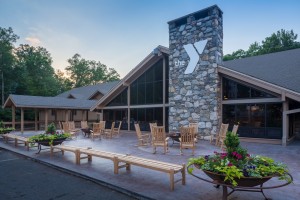
Blue Ridge Assembly, 84 Blue Ridge Circle, Black Mountain, North Carolina 28711
The symposium site is nestled on a mountainside surrounded by 1200 forested acres with two rushing streams. Lodging, dining and lectures are all within walking distance. Blue Ridge Assembly is 40 minutes east of Asheville, NC
Blue Ridge Assembly–much more than just a hotel! Read about it here.
All inclusive lodging and meal packages start at $220 for three night’s lodging and eight meals. Commuter meals are also available for $72 for the weekend.
Blue Ridge Assembly Lodging and Meals Online Registration
Blue Ridge does not take reservations by phone.
Friday June 2
Pre-conference Intensives at Blue Ridge Assembly. Participants may reserve lunch in advance from Blue Ridge here (“Early arrival needs”).
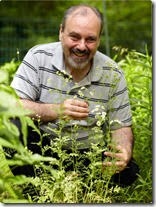
10:00 AM – 3:00 PM
Ethnobotanical and Native Plant Field Study
David Winston, RH(AHG)
Sorry this event is full.
Examine the unique flora of the southeastern mountains and hear stories of creation and the origin of medicine. Discover how the medicine, food and useful materials provided by the plants have nurtured the Native peoples and Appalachian settlers for millennia. Explore the healing power of the herbs, the water, the earth, the trees and how you can make them a part of your life. ($65)
Read More

1:00 PM – 5:00 PM
Pre-conference Intensive: Immunopsychiatry– Immune System Influences on Mental Health and Innovative Therapies for Restoring Balance Part 1 and Part 2
Kenneth Proefrock, ND
New research seems to point to an exciting theory that inflammation and immune dysfunction is a strongly contributing factor to mental illness. This presentation describes the effect of the immune system on neurotransmitter and hormonal functions affecting our mental well-being. We contrast this with the current pharmaceutical models and theories of treatment for depression/anxiety, dysthymia, bipolar disorder, OCD, PTSD, substance abuse and schizoaffective disorders. We then consider dietary, botanical and lifestyle alternatives for healing. Presents strategies for weaning from psychotropic medications, when that might be appropriate. ($79) Read more about this intensive.
5:00 PM – 9:00 PM
Registration at Blue Ridge Assembly, Exhibit Hall Opens
(5 – 7 PM Joe Hallock and Friends play old time mountain music. Come join the fun!)
Saturday June 3
NEW! 7:00 AM – 7:45 AM Qigong with Greg Casey Read more here
7:30 AM – 8:30 AM Breakfast (for those who’ve purchased meals beforehand)
7:30 AM – 8:30 AM Registration: Blue Ridge Center Lobby
8:30 AM – 9:15 AM Opening Meeting: Washburn Auditorium
(Concurrent lectures–choose one–no need to sign up in advance.)
9:30 AM – 11:00 AM
Degenerative Joint Disease –Research for Building Connective Tissue using Bone Broth
Jill Stansbury, ND
Back pain, knee and hip replacements, and arthritic degeneration are challenging conditions that often result in surgical interventions and prescriptions of harmful pain-relieving medication for life. Nutritional approaches to protecting, and optimally rebuilding, connective tissue and bone are of great value. This session summarizes research on the bone-derived nutrients glutamine, chondroitin, glucosamine, glycine and hyaluronic acid, and emphasizes ways to obtain these nutrients from homemade broths and complementary medicinal foods.
Inflammatory Processes and Immune Influences on the Brain–Implications for Mental Health
Jerry Cott, PhD
We discuss recent theories describing the effect of chronic inflammation on the brain and its function. Treatment with pharmaceutical anti-inflammatory drugs may not be suitable, since they can be much too toxic for chronic use. The anti-inflammatory effects of certain botanicals and other natural products, their effects in mental health, and their safety for chronic use are described.
Resetting the 24 Hour Circadian Cycle, Part 1: The Health Effects of a Circadian Cycle out of Balance
Mary Bove, ND
A review of the physiology related to the 24-hour circadian cycle and how a disruption can lead to many of the health challenges of the modern day. There are patterns of brain wave activity, hormone production, cell regeneration, and other biological activities linked to this 24-hour cycle. And a disruption can affect important biological functions such as sleep, alertness, breathing, hormone balance, heart rhythms, lung function, immune function, angiogenesis and more. (Continued in Part 2 at 11:30 AM).
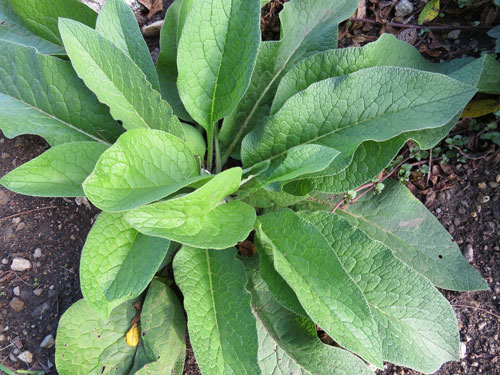
Plant Walk: Specific Indications of Native Medicinal Plants
CoreyPine Shane
The Eclectic physicians of the late 19th and early 20th centuries wrote some of the most prolific and beautiful descriptions of our native plants and how to use them for medicine. Part of this work was to identify the “specific indications” when a plant would be most uniquely indicated for a condition. We’ll look at many native plants and discuss their indications for use.
11:00 AM – 11:30 AM
Refreshments and Exhibit Break
11:30 AM – 1:00 PM
The Yin and Yang of Inflammation – Botanical Compounds and Formulas for Regulating the Inflammatory Cascade
Jason Miller, LAc
Inflammation is a critical part of the body’s intrinsic healing response, and it is also a cascade that can get out of control. By working with the body’s inflammatory and immunological networks, plants are able to aid the healing process while controlling the inflammatory cascade and relieving the associated symptoms. This lecture will highlight some of the world’s most powerful botanical modulators of inflammation: how they work and how to apply them in the clinic. Special focus on synergistic herbal combinations, and the use of traditional formulas.
Ginseng: Taxonomy, Medicinal Uses and Product Adulteration
Mark Blumenthal
The ABC-AHP-NCNPR Botanical Adulterants Program recently came out with a paper detailing adulteration of medicinal ginseng products with other species and ingredients. Using this most recent paper as a starting point, Mark describes the latest initiatives in the program to uncover accidental and/or intentional adulteration and outright fraud in global herbal markets, which emphasizes the importance of relying on dependable sources for the herbal medicines we use.
Resetting the 24-Hour Circadian Cycle, Part 2: Botanical Therapies for Resetting the Cycle
Mary Bove, ND
Working with restorative herbs, eating habits and lifestyle modification can aid in resetting the day/night cycle, sleep cycle, glucose metabolism cycle, circadian hormonal cycles, and body temperature cycles to bring better health. Special focus on adrenal health through restoration and enhancement of the HPA axis function. Case histories.
Creating Herbal Salves and Creams (Demonstration)
Robin McGee
Herbal salves and creams are fun and easy to make! These topical applications can be used to moisturize and cleanse the skin, condition the hair, ease painful muscles, joints and nerves, heal cuts, scrapes, diaper rash, chapped lips and hands, and so much more depending on the herbs we choose. Learn how to create an herbal salve and an herbal cream, what plants are commonly used, and tips to ensure success. Attendees receive samples to take home.
1:00 PM – 2:00 PM
Lunch and Exhibit Break
2:00 PM – 5:30 PM
INTENSIVE: Immune Checkpoint Inhibitors: Working with Botanicals for a Possible ‘Checkmate’ in Integrative Cancer Therapies Part 1 and Part 2
Donald Yance, RH(AHG), CN
Conventional immune therapies such as interleukin 2 (IL-2) and the new class of checkpoint inhibitors produce durable responses in only a small minority of patients, while being associated with significant, nearly universal toxicity. This presentation describes the methods of combining checkpoint inhibitors (mainly a class of drugs called Programmed cell death 1 [PDL-1] inhibitors), with botanical and nutritional programs for advanced cancer patients. Many of these patients were in clinical trials and were they only ones to responded successfully to treatment, with manageable side effects mostly of an autoimmune character. Botanical and nutritional medicine appears not only to mediate the side effects and toxicities of the drugs, but to act synergistically with the drug treatment against the cancer, thus providing a possible “checkmate’ in integrative cancer therapies. ($55) Read More
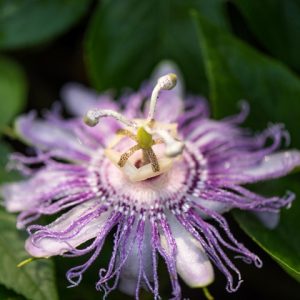 2:00 PM – 3:30 PM
2:00 PM – 3:30 PM
Alzheimer’s Disease: The Loss of Memory and Self
David Winston, RH(AHG)
New research suggests that amyloid plaques and tau protein are not the cause of most Alzheimer’s, rather they are the brain’s response to chronic inflammation and immune activation (caused by GI inflammation, hypertension, diabetes, sleep deprivation and nutrient deficiency). If this is correct (and multiple studies suggest it is) it is possible that lifestyle interventions, mental and physical exercise, herbs, diet and supplements may offer real benefits for reducing neuroinflammation and hyper-immune response, as well as promoting cerebral circulation, memory, focus and concentration. We still do not have a cure for Alzheimer’s but new data offers us real hope for reducing our risk of developing it.
Preparing and Administering Herbal Medicines in a Nebulizer (Demonstration)
Kenneth Proefrock, ND
The nebulizer is a powerful and versatile delivery system. We address treatment for influenza, acute and chronic bronchitis and other acute respiratory illness, bronchiectasis, COPD, asthma/reactive airway disease and lung cancer. We describe the role that nebulization therapies can play in the disruption of biofilm-related conditions like mycoplasma, histoplasmosis and Lyme disease. And we discuss strategies for nasal sprays and eyedrops using the same or similar principles.
Botanical Management of Urinary Pain
Jill Stansbury, ND
From bladder infections to renal calculi, urinary complaints are uncomfortable and can often be excrutiating. This presentation offers formulas to manage the discomfort of UTIs, interstitial cystitis and acute renal colic.
Plant Walk: Establishing Plant Relations
Kathleen Maier, RH(AHG)
This experiential class teaches simple methods for developing intimate relationships with the plants around us. We employ techniques such as wide angle vision, sketching, organoleptics, journaling, and other methods in order to understand the depth of the relationships that are available to us with plants. We will also pay tribute to Goethe and his study of plant morphology.
3:30 PM – 4:00 PM
Refreshments and Exhibit Break
4:00 PM – 5:30 PM
Neuroinflammation Part 1: Environmental Causes, Mechanisms, Symptoms and Disease Presentations
Walter Crinnion, ND
Is your brain on fire? Chronic neuroinflammation can lead to headaches, chronic pain, ADHD, Alzheimer’s, Parkinsonism, and autism. These chronic health problems have proven to be difficult-to-treat, quite possibly because the neuroinflammatory component has not be adequately recognized and addressed. Neuroinflammation can be triggered by traumatic brain injury, high blood sugar, the Standard American Microbiome (from the Standard American Diet), and a number of common pollutants in urban air. Explores how inflammation starts, the common triggers and, in Part 2, how to treat this condition.
Addressing Insomnia as a Yin Deficiency: Nourishing Herbs and Nutrients
CoreyPine Shane
Most herbal treatments for insomnia focus on sedating herbs to calm an agitated nervous system. While this often works for acute insomnia, chronic insomnia does not usually respond as well because often there is an underlying deficiency. Using the lens of Chinese medicine, we can understand how to identify this pattern and what remedies to use, incorporating Western herbs, Chinese herbs, and nutritional supplements.
Self-Care for Stress Reduction
Teresa Boardwine, RH(AHG)
Creating spa conditions to revitalize ourselves during stressful times, using herbs and natural therapies. Enjoy quiet space for renewal and learn techniques for nurturing yourself.
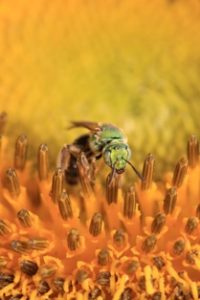 Herb Walk
Herb Walk
Doug Elliott
Whether he’s pointing out poison ivy, pontificating on poke sallet, crooning about creasy greens, jiving about ginseng, or extolling the virtues of dandelions, this herbalist, author, and storyteller will delight and amaze you with his broad, practical, scientific and cultural knowledge of the area’s many useful wild plants.
5:30 PM – 6:30 PM Dinner
5:30 PM – 7:00 PM Exhibit Hall Open
6:30 PM – 7:30 PM
AHG Dessert Reception
Hosted by the American Herbalists Guild (AHG) for dessert and tea. Come to see your fellow members or find out more about the AHG.
8:00 PM – 9:30 PM
Keynote: Humorous Health
Mark Blumenthal
This look at current issues in health, diet, pharmacy, medicine and related issues as seen through cartoons provides the best medicine of all. Mark’s collection of all new ‘toons from newspapers and magazines can show once again that laughter is the best medicine.
Sunday June 4
NEW! 7:30 AM – 8:15 AM Qigong with Greg Casey Read more here
7:30 AM – 8:30 AM Breakfast
9:00 AM – 10:30 AM
Panel Discussion: Evidence-Based Herbal Medicine: New Science and Ancient Tradition
Jerry Cott, Jason Miller and David Winston
While modern medicine puts great store in double-blind, placebo-controlled evidence for the use of drugs, botanicals and other therapies in medicine, such studies are not always without flaws. Evidence of therapeutic success also comes to us from the healing traditions of Traditional Chinese Medicine, Ayurveda and more recently from the Eclectic physicians of the early 1900s. Hear from a scientific researcher from the front lines of research design, and practitioners who combine biomedical and traditional healing methods in their practices, to shed more light on this question of ‘evidence’.
10:30 AM – 11:00 AM
Refreshments and Exhibit Break
11:00 AM – 12:30 PM
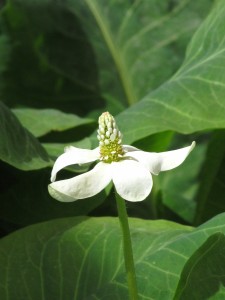
The Vagus Nerve: A Two-Way Connection, Part 1—The Brain’s Effect on Immunity and Gut Health: Botanical and Lifestyle Therapies
Donald Yance, RH(AHG), CN
Recent studies have described the vagus nerve as a bi-directional information network between the gut and the brain and the most important element of the parasympathetic nervous system—the one that calms you down. Stimulation of the vagus nerve has been shown to relieve anxiety, reduce stress, heart rate and blood pressure, improve memory, immune function and sleep, all of which can reduce inflammation, allergic response and even headaches. This two-part presentation discusses how to increase the activity of the vagus nerve and promote an optimal state of wellness.
In Part 1 we review vagus nerve physiolgy and discuss how positive emotions build physical health through this connection between the brain and the gut, and how techniques such as meditation, prayer, mindfulness, deep breathing and listening to relaxing music provide great benefit to patients with heart disease and cancer through the stimulation of the vagus nerve. Calming herbs and nutrients can also be of great benefit, and many of them, interestingly, are also soothing to the gut and help prevent GI problems (ulcers, colitis, IBS etc). Continued in Part 2 after lunch.
Herbal and Nutritional Approaches to Hepatitis B & C
David Winston, RH(AHG)
New pharmaceutical treatments for hepatitis C are very effective, but the average cost for the 12 week treatment is $94,500. Due to the cost many people are not able get treatment until they show liver symptoms, which may be many years after being infected. This is unfortunate because research suggests that early treatment (before significant liver damage occurs) provides far better outcomes and a normal life expectancy. This “window of waiting” is where herbs, diet and nutritional supplements can offer major benefits by protecting the liver from inflammation and damage, reducing viral loads, preventing liver-induced GI damage, supporting the immune system and preventing adverse effects caused by pharmaceutical drugs used to treat Hepatitis B or C.
Neuroinflammation, Part 2– Treatment Diet, Botanicals, Polyphenols, Meditation, Exercise and Yoga
Walter Crinnion, ND
Once you have identified that neuroinflammation is present, what can you do to put out the fire? Fortunately there are a number of powerful therapeutic tools to quench inflammation, including diet, botanicals, polyphenols, meditation, exercise and yoga. The Mediterranean diet, with its polyphenolic compounds and generous fiber content improves the microbiome and helps quench the flames. The use of high quality probiotics is of benefit as well. Botanical therapies for neuroinflammation are discussed in detail.
Laying on Leaves, the Science and Art of Herbal the Herbal Poultice
Richo Cech
An attraction to the leaves of plants, their fragrance, shape, color, taste and texture has led me to study what I call laying on leaves—the art of poulticing. A poultice is simply herbal material (leaf, root or seed), whole or mashed, that is layered or spread on the skin. We discuss the science and art of poulticing and demonstrate the making and application of a spontaneous herbal poultice.
Herb Walk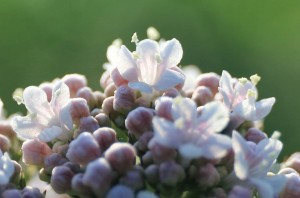
Doug Elliott
Refresh yourself in the beautiful Blue Ridge Assembly forest with Doug, the consummate story- teller, entertainer and harmonica player. Scientific medicinal plant information and folklore are combined in a seamless whole in this walk on the wild side!
12:30 PM – 1:30 PM Lunch
12:30 PM – 2:00 PM Exhibit Hall Open
2:00 PM – 5:30 PM
INTENSIVE: Cooking with Wild Herbs and Foods with Marc Williams Part 1 and Part 2
Marc Williams
Marc leads us on a culinary adventure featuring prime examples of how wild foods can be medicine at the same time as being star attractions in a yummy array of food items. Some examples of foods featured include a wild kraut, probiotic hot sauce, edible flowers, wild fruit leather and a number of tonic beverages featuring tastes from the wild. This class provides a holistic understanding of what it takes to bring sustenance from field to fork and have fun while doing it!. ($55) Read More
2:00 PM – 3:30 PM
The Vagus Nerve, Part 2—The Gut’s Effect on our Brain Functioning: Botanical and Lifestyle Therapies
Donald Yance, RH(AHG), CN
In Part 2 we discuss the gut flora and its influence on immunity and brain functioning. Recent research shows that a lack of beneficial gut flora and toll-like receptors in the gut wall stimulate a neuroendocrine response to gut pathogens. Neurons respond to bacterial and viral components in the gut, leading to an inflammatory response. This leads to reduced stimulation of the vagus nerve, contributing to negative mental activity, even mental illness. This lecture is packed with botanical recommendations to put this knowledge into practice for optimal health.
Differential Application of Botanical Immunomodulating Agents for Children in Light of Pharmacological Activity
Mary Bove, ND
Botanicals interact with the human immune system in a variety of ways, eliciting multiple types of physiological responses: from activating macrophages and balancing helper T1 and T2 cells to inhibiting inflammation by blocking pro-inflammatory cytokines. Understanding some of the basic pharmacological strengths of specific phytochemicals, the seasonal variation of pharamacologic activity, and the application in pediatric healthcare gives the clinician options for using immune botanicals as rapid response agents in acute situations (such as acute respiratory infections) and as long-term immune building agents (in allergies and other chronic conditions).
Update on the Mainstream use of Botanicals and Dietary Supplements in the Mental Health Scientific Literature
Jerry Cott, PhD
We discuss clinical psychiatry trial results – both positive and not-so-positive, and some of the reasons that trial results can vary. There will be time for your in-depth questions on issues such as product choice, dose, trial design, etc.
Appalachian Wildcrafting Walkabout (Outdoors)
Abby Artemisia
Learn to identify medicinal Appalachian wild plants, how to prepare them, the best tools for the job, and how to wildcraft safely and ethically to support proliferation and healthy habitats. Learn where to find medicinal plants and the best time to harvest. Bring your field guides!
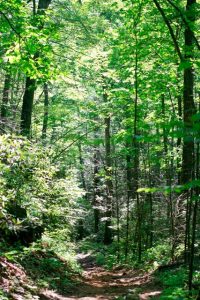
3:30 PM – 4:00 PM
Refreshments and Exhibit Break
4:00 PM – 5:30 PM
Botanical Interventions for Degenerative Neurological Diseases
Kenneth Proefrock, ND
The long-term impact of environmental toxicity and aging are described as we discuss the ways in which a nervous system becomes sick, and therapies to stop the pathological processes involved. We have a much larger elder population than ever before in history and there are specific concerns with maintaining cognitive health and a sense of agency and independence. We address Alzheimer’s disease/cognitive decline, Parkinson’s disease, ALS, peripheral neuropathies, spinal muscle atrophy, chronic encephalopathies and MS. Therapies include using phospholipids, and how to make liposomes from botanical glycerites with specific recipes and applications.
Botanical Medicine in Oncology, Part 1
Jason Miller, LAc
In part one we discuss the underlying imbalances which lead to a diagnosis of cancer. Central to this process is gathering all of the information relevant to each individual’s case. In general, the more information we have, the better. We then go deeply into the uses of Traditional Chinese Herbal Medicine in cancer therapies and how determining underlying imbalances can lead to personalized and effective herbal therapies. Includes recent biomedical research which supports these traditional uses.
Deep in the Tissues: Autoimmune Disease
Kathleen Maier, RH(AHG)
While there are distinct presentations on the spectrum of autoimmune disease, from MS to Hashimoto’s, there are similar patterns. This class describes the immune system from an energetic framework and the primordial understanding of the connection between kidneys, blood, bone marrow and immunity. We examine immune factors produced in the marrow, possible deep, lingering infections leading to deficiency and herbal remedies that address this complex disease.
Herb Walk
Doug Elliott
Laugh and learn as Doug guides you through a wealth of medicinal herbs and regales you with stories of the plants, the medicines and the people of the Appalachians.
6:00 PM –7:00 PM
Dinner and Exhibit Break
7:30 PM – 9:00 PM
Herbal Songs and Stories with Jill Stansbury and Kathleen Maier
(Fireside program in the amphitheater)
Songs inspired by plants and the natural world to build community and support personal healing. Stories of healing from this tumultuous year. Come to sing, tell a story of healing, or just be.
Monday June 5
7:30 – 8:30 AM Breakfast
8:30 AM – 10:00 AM
The Most Commonly used Pharmaceuticals, their Health Risks, Botanical and other Naturopathic Options
Walter Crinnion, ND
We are all aware of the tsunami of pharmaceutical agents that have overwhelmed our culture, and are being portrayed as ‘saviors’ of humankind. This talk examines the most commonly used pharmaceutical agents, presents their known risks (which often outweigh their potential benefit) and present far-more-effective natural treatments. Clinicians need to be aware of the potential side-effects of the medications that have become so commonplace in our society that many seem to think of them as just a normal part of life. For example, Prilosec or Prevacid (and other H2 blockers) can cause overt B12 deficiency leading to serious brain damage. Discover botanicals, supplements and lifestyle therapies that can be just as effective without these serious side effects.
Wild Herbal Seasonings & Spices (Demonstration)
Vickie Shufer
Enhance your cooking with flavor and nutrients from wild herbs to season and spice up your foods. Find out which herbs to use for making spice blends and taste dishes prepared from wild herbal seasonings and spices.
Entheogens and the Dying Process
Kathleen Maier, RH(AHG)
The rise in interest in the ceremonial uses of entheogenic (hallucinogenic) medicines has given us insights into these plants and our own endocrine function and physiology. This class looks at the chemistry of these plants, N,N-Dimethyltryptamine in particular, to see how these teachers give instruction for the death and dying process. Not to be used at transition, but as tools to navigate pathways of the process. We also talk about the effect of the popularization of these sacraments and the impact on indigenous cultures.
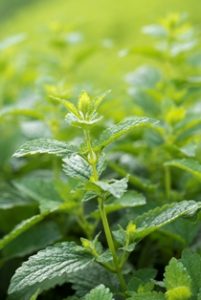
Plant Walk—What Family is That?
Marc Williams
Delve into the major plant families of the US with ethnobiologist Marc Williams. Reinforce your plant identification skills by observing family patterns such as leaf, flower and fruit types. The family membership and characteristics of exotic invasive species are described. By understanding plant families, we can appreciate their potential ecological and ethnobotanical applications.
10:00 AM – 10:30 AM
Refreshments and Exhibit Break
10:30 AM – 12:00 PM
Botanical Medicine in Oncology, Part 2
Jason Miller, LAc
In part 2 we examine the “biological terrain” and how to alter it using botanical medicine. Includes a description of useful testing of biomarkers for patient overall health, specific types of cancer and the tumor microenvironment. We go on to discuss the effects of cancer and current cancer treatments on quality of life, and describe plant-based compounds to address the side effects of chemotherapy and radiation. Finally we discuss the current controversies in cancer care including herb-drug interactions, antioxidants, fasting, cannabis, amalgam removal, hyperthermia and more.
Traditional Diets: Nutrient-Rich Wild Foods
Jill Stansbury, ND
People have evolved to best utilize, and even thrive, on the nutrients available in different ecosystems – from low oxygen environs of the Tibetan plateau, to agrarian societies of the plains, to the high-fat diet of native Alaskans, to the pescetarian diets of various island people. This highly visual presentation explores the genetic influences that contribute to optimal human diets and discusses the superiority of wild foods and traditional diets compared to standard grocery store fare. It may inspire us to add a few new “old” foods to our own diets.
Making Herbal Glycerites (Demonstration)
Teresa Boardwine, RH(AHG)
Glycerites are most useful for extracting the aromatic herbs which easily lend their volatile oils to the glycerin. Discover the sweetness of herbal extractions using vegetable glycerin and how to prepare them. We also discuss the best uses of glycerites, and when they may be better to use therapeutically than tinctures and other delivery systems.
Saving Seeds of Self-Sufficiency: Medicinal Plants, Wind, Water, Soil and Seasons
Richo Cech
Medicinal herb seed production and processing is as diverse as the plants we cultivate. We discuss seed saving techniques, winnowing, storage and the Mother Plant concept. Hands-on seed cleaning and a virtual tour of various techniques of collecting and saving seed are included.
12:00 PM – 1:00 PM
Lunch and Exhibit Break
1:00 PM – 2:00 PM
Closing Panel: Medicinal Uses of Salvia Miltiorrhiza (Dan Shen)
Walter Crinnion, Jill Stansbury, Jason Miller
Dan shen (red sage) is considered one of the most important traditional Chinese medicines and has widespread use in Asian countries. Traditionally, it has been used to improve bodily functioning, as well as to treat bleeding, abnormal menstruation, miscarriage, swelling, insomnia, and hepatitis. More recent uses include treatment of blood vessel/heart and brain/blood vessel conditions–lots to discuss in this closing panel.
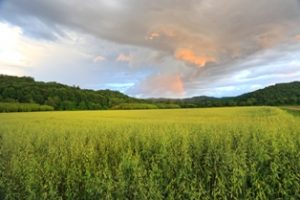
3:30 PM – 5:30 PM
SORRY THIS EVENT IS NOW FULL
Farm Tour: Gaia Herbs in Brevard, North Carolina
Ric Scalzo and Mary Bove
Free of charge, only open to symposium participants. Limit 60. Sign up in advance to reserve your spot!
On this tour you’ll walk the fields and learn about planting, cultivation and harvest techniques while enjoying the beautiful, fertile valley surrounded by mountains. It’s an experience not to be missed! Read more
Abby Artemisia
An herbalist and botanist living in the mountains of western North Carolina, Abby is dedicated to the practice and teaching of herbalism. She makes her own medicines and her passion is taking people out into the woods to find the botanical medicines growing all around us.
Presentation:
1. Appalachian Wildcrafting Walkabout
Mark Blumenthal
The founder and executive director of the American Botanical Council and the editor and publisher of HerbalGram (an international, peer-reviewed quarterly journal), Mark has written hundreds of articles and appears regularly on national radio and TV.
Presentations:
1. (Saturday night) Humorous Health:
2. Ginseng Taxonomy, Medicinal Uses and Adulteration
Teresa Boardwine
Teresa Boardwine operates Green Comfort School of Herbal Medicine in the Blue Ridge Mountains of Virginia, where she offers classes, consultations and online access to her workshops. She has been teaching her hands-on medicine making classes for over 20 years.
Presentations:
1. Making Herbal Glycerites (Demonstration)
2. Herbal Spa: Self-Care for Herbalists
Mary Bove, ND
A clinical medical herbalist, Mary Bove had a practice in family medicine in Brattleboro, Vermont for over 20 years. She is the author of An Encyclopedia of Natural Healing for Children and Infants, and recently produced an iPhone App, Momma Nature’s Food Pharm Guide. She is currently the botanical educator for Gaia Herbs, Inc.
Presentations:
1. Resetting the 24 Hour Circadian Cycle, Part 1 — The Health Effects of a Circadian Cycle out of Balance
2. Resetting the 24 Hour Circadian Cycle, Part 2 — Botanical Therapies for Resetting the Cycle
3. Differential Application of Botanical Immunomodulating Agents for Children in Light of Pharmacological Activity
Richo Cech
Richo started his professional work as an archaeologist and ethnobotanist in East Africa. Upon his return to the United States in 1978, he began cultivating and saving the seed of medicinal plants. Over the years, his gardens have become the basis for Strictly Medicinal Seeds, growers of organic, open pollinated and GMO-free seed and plants of medicinal herbs, culinary herbs, succulents, trees and garden vegetables. Richo and his family produce a popular, bi-yearly, hand-illustrated seed catalog that provides access to this collection of common, quirky, eclectic, and bizarre seeds and plants. His books include “Making Plant Medicine” (2000), “Growing At-Risk Medicinal Herbs” (2002/2017), and “The Medicinal Herb Grower” (2009).
Richo has botanized in China and Africa, resulting in the introduction of unusual and helpful medicinal herb species to gardeners throughout the world.
Presentations:
1. Laying on Leaves, the Science and Art of Herbal Poulticing
2. Saving Seeds of Self-Sufficiency: Medicinal Plants, Wind, Water, Soil and Seasons
Jerry Cott
Jerry Cott is an expert in the evaluation of dietary supplements for psychiatric indications. He has been a government researcher for 25 years at the National Institutes of Mental Health and other government agencies. He also spent 8 years in industry studying natural and unnatural treatments for mental health disorders. He is currently researching the integration of mainstream psychiatry with nutritional (particularly omega-3 fatty acids) and botanical interventions for the treatment of mental disorders.
Presentations:
1. Inflammatory processes and immune influences on the brain–implications for mental health
2. Update on the mainstream use of botanicals and dietary supplements in the mental health scientific literature
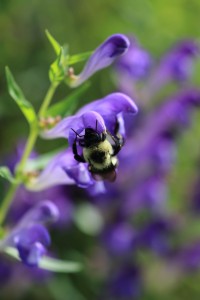 Walter Crinnion, ND
Walter Crinnion, ND
Walter J. Crinnion has been in practice since 1982, specializing in treating chronic health problems caused by environmental chemical overload. He is past director of the Environmental Medicine Center at Southwest College of Naturopathic. He offers a six-month training in environmental medicine, and an annual conference on the topic.
Presentations:
1. Neuroinflammation Part 1 – Environmental Causes, Mechanisms, Symptoms and Disease Presentations
2. Neuroinflammation, Part 2– Treatment: Diet, Botanicals, Polyphenols, Meditation, Exercise and Yoga
3. The Most Commonly used Pharmaceuticals, their Health Risks, Botanical and other Naturopathic Options
Doug Elliott
Doug Elliott is an herbalist, storyteller, basket maker and author who presents programs from Canada to the Caribbean. He has written four books, including Wild Roots, and recorded a number of award-winning albums of stories and songs. His latest book: Swarm Tree: Of Honeybees, Honeymoons and the Tree of Life.
Presentations:
3 Herb Walks
Kathleen Maier RH(AHG)
Kathleen Maier has been a practicing herbalist for over twenty years and is currently director of Sacred Plant Traditions in Charlottesville, Virginia where she offers a three-year clinical/community herbalist training program. She began studying plants in the Peace Corps in Chile and is the co-author of Bush Medicine of the Bahamas.
Presentations:
1. Plant Walk: Establishing Plant Relations
2. Entheogens and the Dying Process
3. Deep in the Tissues—Autoimmune Disease
Robin McGee
Robin McGee is a community herbalist, organic farmer, herbal educator, writer and storyteller. From her early childhood, it has been her intimate relationship with the Plant People and the Tall Standing Ones that feeds her soul. She lives with her husband on their chemical-free farm and botanical sanctuary in Anderson, SC.
Presentation:
1. Creating Herbal Salves and Creams
Jason Miller, LAc
Jason Miller practices botanical and nutritional medicine, acupuncture, and Asian bodywork at his clinic, Jade Mountain Medicine in Ashland, Oregon. He received his master’s degree in acupuncture and Oriental medicine from the Oregon College of Oriental Medicine in 2005, and completed a postgraduate internship at the “House of Celebrity Doctors” in Nanjing, China. His approach bridges the frameworks of traditional and modern medicine in the management of chronic disease.
Presentations:
1. The Yin and Yang of Inflammation – Botanical Compounds and Formulas for Regulating the Inflammatory Cascade
2. Botanical Medicine in Oncology, Part 1
3. Botanical Medicine in Oncology, Part 2
Kenneth Proefrock, ND
A naturopathic physician practicing in Sun City, Arizona, Kenneth Proefrock is also the owner of Vital Force Naturopathic Compounding. He is the vice-president of the North American Board of Naturopathic Examiners and chair of the biochemistry portion of the naturopathic physician’s licensing exam.
Presentations:
1. Pre-conference Intensive Friday 1 – 5 PM: Immuno-psychiatry ($79)
2. Preparing and Administering Herbal Medicines in a Nebulizer (Demonstration)
3. Botanical Interventions for Degenerative Neurological Diseases
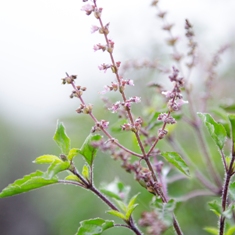 CoreyPine Shane, RH(AHG)
CoreyPine Shane, RH(AHG)
CoreyPine Shane, RH(AHG) is Director of the Blue Ridge School of Herbal Medicine and has spent over 20 years teaching students and helping clients by artfully blending Chinese and Western herbal traditions with a focus on local plants. As a seasoned wildcrafter he has extensive knowledge of wild plants as well as medicine making. He has taught at many national conferences, written on herbal medicine, and is a registered member of the American Herbalists Guild. CoreyPine believes that laughter is an essential part of any medicine chest, which is why he is a part of the “Wise Guy” school of healing..
Presentations:
1. Addressing Insomnia as a Yin Deficiency: Nourishing Herbs and Nutrients
2. Plant Walk: Specific Indications of Native Medicinal Plants
Vickie Shufer, MA
A naturalist and herbalist with a master’s degree in therapeutic herbalism, Vickie Shufer teaches classes on edible and medicinal plants, as well as outdoor education programs. She is the author of The Everything Guide to Foraging and was the editor/publisher of The Wild Foods Forum newsletter (1994 – 2014). She also owns and manages a native nursery, The Wild Woods Farm, where she propagates native plants.
Presentations:
1. Wild Herbal Seasonings & Spices (Demonstration)
Jill Stansbury, ND
A naturopathic physician, Jill Stansbury specializes in women’s health, mental health, and chronic disease. She teaches on the faculty of National University of Naturopathic Medicine, where she was chair of the botanical medicine department for 25 years. She travels extensively in the Peruvian Amazon to study indigenous healers and their herbs.
Presentations:
1. Botanical Management of Urinary Pain
2. Degenerative Joint Disease – Research for Building Connective Tissue with Bone Broth
3. Traditional Diets: Nutrient-Rich Wild Foods from Around the World
Marc Williams
An ethnobotanist, Marc Williams has taught hundreds of people about the marvelous world of plants, people and their interface, while working with over 50 organizations and online at the website www.botanyeveryday.com. He is dedicated to improving our current global ecological crisis. His training includes a B.A. in Environmental Studies/Sustainable Agriculture and an M.A. in Appalachian Studies/Sustainable Development
Presentations:
1. Intensive Sunday 2 – 5:30 PM: Wild Foods Cooking ($55)
2. Plant Walk—What Family is That?
David Winston RH(AHG)
David Winston is an herbalist and ethnobotanist with 41 years of training and clinical experience in Cherokee, Chinese and Western/Eclectic herbal traditions. He offers a two year clinical training program in botanical medicine at David Winston’s Center for Herbal Studies and is the founder and president of Herbalist and Alchemist, Inc.
Presentations:
1. Friday 10 AM to 3 PM: Ethnobotanical and Native Plant Field Study ($65)
2. Alzheimer’s Disease: The Loss of Memory and Self
3. Herbal and Nutritional Approaches to Hepatitis B & C
Donald Yance, RH(AHG)
An herbalist and certified nutritionist, Donald Yance practices at the Mederi Centre for Natural Healing in Ashland, Oregon, where he specializes in the treatment of cancer and other chronic diseases. He is the founder and president of the Mederi Foundation, a nonprofit organization for professional education and clinical research in integrative medicine, and president and formulator of Natura Health Products.
Presentations:
1. The Vagus Nerve: A Two-Way Connection, Part 1—The Brain’s Effect on Immunity and Gut Health: Botanical and Lifestyle Therapies
2. The Vagus Nerve, Part 2—The Gut’s Effect on our Brain Functioning: Botanical and Lifestyle Therapies
3. Intensive: Saturday 2 – 5:30 PM Immune Checkpoint Inhibitors: Working with Botanicals for a Possible ‘Checkmate’ in Integrative Cancer Therapies ($55)

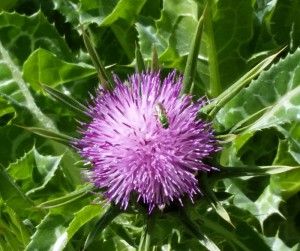
Registration Fees
$420 at the door
Online and phone registration now closed.
Lodging and Meal Information
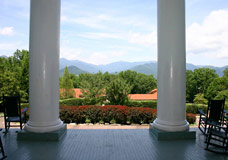 Blue Ridge Assembly, Black Mountain, NC
Blue Ridge Assembly, Black Mountain, NC
84 Blue Ridge Circle, Black Mountain, NC 28711
All inclusive lodging and meal packages start at $220 for three night’s lodging and eight meals. Commuter meals are also available for $72 for the weekend.
Register for lodging and meals online
Blue Ridge does not take reservations by phone.
Alternate Lodging in Black Mountain:
Quality Inn (828) 669-9950
Super 8 Motel (828) 669-8076
These are both about 10 minutes away.
Camping:
The closest campgrounds are in Swannanoa, about 10 minutes away from Blue Ridge Assembly. They offer tent camping, RV hookups and camping cabins. Call KOA at (800) 562-5907 or Mama Gertie’s Hideaway at (828) 686-4258 for reservations.
Airport Transportation
The closest airport is Asheville Regional Airport. Airport van: Diamond Executive Car Transportation. Reservations: call (828) 281-8139 and mention the herb symposium. Please have your flight arrival and departure times ready when you call. Cost: $65 one way from the airport to Blue Ridge (45 minute trip) for one person. Fees are divided up if there’s more than one person per trip.
Cancellations
Before May 17, symposium and intensive fees will be refunded minus $50 processing fee per registrant. No refunds can be given after May 17, 2017. Please make all refund requests by email
Continuing Education
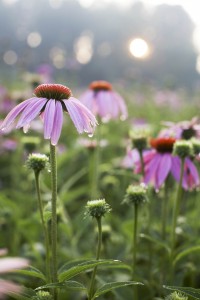
We offer CE, CME, CNE, PDA and CEUs for:
- Acupuncturists: 22.5 PDA (hours) approved by NCCAOM, icludes Friday Field Study and attendance at Saturday and Sunday intensives. PDA details here
- Naturopathic Physicians: Maximum 21.5 CME hours approved by OBNM of which 9.5 hours can be pharmacy (includes Friday pre-conference intensive) ND CME details here
- Nursing: Maxiumum 21.5 CNE contact hours approved for selected lectures including Friday pre-conference events. CNE details
- Pharmacists: Approved for 12 hours by North Carolina Association of Pharmacists. North Carolina licensed pharmacists only. Program ID# NC06051725.
- NEW North Carolina Chiropractors: 17 hours approved by NCBOCE
CE Questions? Contact us and we’ll be happy to help.
Lecture Notes
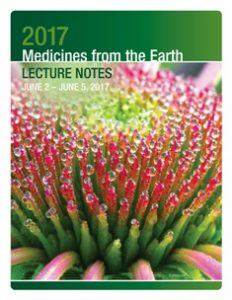
Lecture notes are compiled into an online book (proceedings book) which is available to all registrants at no cost. In the beginning of May registrants will be sent a link and password to access the teacher materials online. Printed books are also available for $20 at the symposium ($30 afterwards).
Thanks to Gaia Herbs for the beautiful photos on this page!
NEW! Qigong Saturday and Sunday mornings with Greg Casey
Saturday 7:00 – 7:45 AM and Sunday 7:30 – 8:15 AM on Eureka Hall Front Porch (or on the nearby lawn weather permitting)
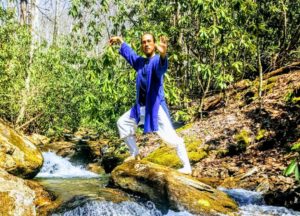
Qigong is the ancient Chinese art of cultivating qi/life force energy through the combination of specific exercises utilizing movement, breathing and mind awareness/intention. In these two 45 minute sessions Greg Casey will guide participants in the practice of simple, gentle qigong exercises suitable for beginners and advanced practitioners of all ages to help vitalize the body, mind and spirit while simultaneously bringing participants into greater harmony and communion with themselves and their environment.
A Dr. of Daoist Medicine, Gregory Casey (LAc. MAOM Dipl. OM) attended Daoist Traditions College of Chinese Medical Arts in Asheville, NC (2010-2014) where he earned his Master of Acupuncture and Oriental Medicine Degree. He currently teaches qigong to the masters degree program acupuncture students enrolled at Daoist Traditions College, and supervises interns learning to practice Chinese medicine at the college clinic. An experienced practitioner, he uses many modalities of Chinese medicine including acupuncture, herbal medicine, food therapy, prescription qigong, acupressure massage, essential oils, stone medicine and providing lifestyle guidance.
| FRIDAY, JUNE 2 |
||||||
| 10:00 AM – 3:00 PM | Ethnobotanical and Native Plant Field Study—David Winston ($65) | |||||
| 1:00 PM - 5:00 PM | Pre-conference Intensive: Immuno-psychiatry Kenneth Proefrock ($79) | |||||
| 5:00 PM - 9:00 PM | Registration in Blue Ridge Center Lobby (5 – 7 PM Joe Hallock and Friends play old time mountain music) | |||||
| SATURDAY, JUNE 3 |
||||||
| 7:00 AM – 7:45 AM | Qigong with Greg Casey Eureka Hall Front Porch |
|||||
| 7:30 AM – 8:30 AM | Breakfast: Dining Room Blue Ridge Center Lobby | |||||
| 7:30 AM – 8:30 AM | Registration: Blue Ridge Center Lobby | |||||
| 8:30 AM - 9:15 AM | Opening Meeting—Washburn |
|||||
| 9:30 AM - 11 AM | Degenerative Joint Disease Jill Stansbury | Inflammatory and Immune Influences on the Brain Jerry Cott | Circadian Cycle Pt 1 Effects of Malfunction Mary Bove | Plant Walk: Specific Indications CoreyPine Shane |
||
| 11:00 AM - 11:30 AM | Refreshments/Exhibit Break | |||||
| 11:30 AM - 1 PM | Yin and Yang of Inflammation Jason Miller | What’s in your Herbs-Adulterants Mark Blumenthal | Circadian Cycle Pt 2 Resetting the Cycle Mary Bove | Herbal Salves and Creams (Demonstration) Robin McGee |
||
| 1:00 PM - 2 PM | Lunch and Exhibit Break | |||||
| 2:00 PM - 3:30 PM | Alzheimer’s Disease David Winston | Nebulizer Demonstration Kenneth Proefrock | Botanical Management of Urinary Pain Jill Stansbury | Establishing Plant Relations—Plant Walk Kathleen Maier |
||
| 2:00 PM - 5:30 PM | Intensive: Immune Checkpoint Inhibitors in Cancer Therapeutics Donald Yance ($55) |
|||||
| 3:30 PM - 4 PM | Refreshments/Exhibit Break | |||||
| 4:00 PM - 5:30 PM | Neuroinflammation Pt. 1: Causes, Symptoms, Diseases Walter Crinnion | Insomnia as a Yin Deficiency CoreyPine Shane | Self-Care for Herbalists Teresa Boardwine | Herb Walk Doug Elliott |
||
| 5:30 PM - 6:30 PM | Dinner Blue Ridge Center | |||||
| 5:30 PM - 7:00 PM | Exhibit Break | |||||
| 6:30 PM - 7:30 PM | American Herbalists Guild (AHG) Dessert Reception | |||||
| 7:30 PM - 9:00 PM | Humorous Health: Current Issues in Health, Diet, Pharmacy, Medicine & Related Issues as Seen Through Cartoons Mark Blumenthal |
|||||
| SUNDAY, JUNE 4 |
||||||
| 7:30 AM - 8:15 AM | Qigong with Greg Casey Eureka Hall Front Porch |
|||||
| 7:30 AM - 8:30 AM | Breakfast: Dining Room Blue Ridge Center Lobby |
|||||
| 9:00 AM - 10:30 AM | Panel Discussion: Evidence-Based Herbal Medicine: New Science and Ancient Tradition Jerry Cott, Jason Miller and David Winston |
|||||
| 10:30 AM - 11 AM | Refreshments/Exhibit Break | |||||
| 11 AM - 12:30 PM | Vagus Nerve 1: The Brains Effect on Immunity and Gut Donald Yance | Neuroinflammation Pt. 2: Botanicals and other Natural Therapies Walter Crinnion | Hepatitis B & C David Winston | Poultice Demonstration Richo Cech | Herb Walk Doug Elliott |
|
| 12:30 PM - 2 PM | Lunch and Exhibit Break | |||||
| 2:00 PM - 3:30 PM | Vagus Nerve 2: The Effect of the Gut on the Brain Donald Yance | Immunomodulators in Pediatric Practice Mary Bove | Research Update: Mainstream use of Botanicals and Supplements in Mental Health Jerry Cott | Wildcrafting Walkabout Abby Artemesia | ||
| 2:00 PM - 5:30 PM | Intensive: Wild Foods Cooking Marc Williams ($55) |
|||||
| 3:30 PM - 4 PM | Refreshments/Exhibit Break | |||||
| 4:00 PM - 5:30 PM | Degenerative Neurological Disease Kenneth Proefrock | Botanical Medicine in Oncology, Part 1 Jason Miller | Autoimmune Disease: Deep in the Tissues Kathleen Maier | Herb Walk Doug Elliott |
||
| 5:30 PM - 7:00 PM | Exhibit Break |
|||||
| 6:00 PM - 7:00 PM | Dinner: Blue Ridge Center |
|||||
| 7:30 PM - 9:00 PM | Herbal Songs and Stories in Amphitheater Jill Stansbury and Kathleen Maier |
|||||
| MONDAY, JUNE 5 |
||||||
| 7:30 AM - 8:30 AM | Breakfast: Dining Room Blue Ridge Center Lobby |
|||||
| 8:30 AM - 10:00 AM | Top Toxic Pharmaceuticals and Alternatives Walter Crinnion | Wild Herbs and Spices (Demo) Vickie Shufer | Entheogens and the Dying Process Kathleen Maier | Plant Families: Herb Walk Marc Williams |
||
| 10:30 AM - 12:00 PM | Botanical Medicine in Oncology, Part 2 Jason Miller | Traditional Diets Jill Stansbury | Making Herbal Glycerites (Demonstration) Teresa Boardwine | Saving Medicinal Herb Seeds Richo Cech |
||
| 1:00 PM - 2:00 PM | Panel: Salvia miltiorrhiza (Dan Shen) Panelists: Walter Crinnion, Jill Stansbury and Jason Miller | |||||
| 3:30 PM - 5:00 PM | Farm Tour: Gaia Herbs in Brevard, North Carolina Ric Scalzo and Mary Bove |
|||||
| 2:00 PM - 2:15 PM | Closing Meeting | |||||
ONLINE REGISTRATION
$399 by June 1 (Online and phone registration ends at 5 PM Eastern Time on Thursday June 4. After that please register at the door.)
$420 at the door
Register by phone 541-482-3016






